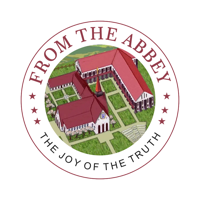Prudence and the Examined Life in Spiritual Growth
Spiritual growth means filling your life with the goodness that God has planned for you. The virtue of prudence is the cardinal virtue of identifying authentic human good and making a plan to attain it. There are three stages of prudence:
- Examining your own life, growing in the wisdom of what is right and wrong, forming your conscience (this is all one stage but we’ll treat it in two parts).
- Making a practical judgment of what is the best possible good through an exercise of conscience.
- Exercising your judgment to attain the good through planned, positive action.
Examining Your Life
You may have heard the slogan, “The unexamined life is not worth living.” Yes, it’s a cliche. But there is a lot of truth to it. Think about the way we live most of our lives. We act as if we were victims of our environment and of the actions of others. We allow ourselves to be swept along in a wave of “busyness” so we don’t have time to do what we know is most important. Or worse yet we don’t have a clue what really is most important because we’ve never stopped to think about it. We live our daily lives and hope God will sort it all out in the end.
If this describes you, don’t feel bad. It describes most of us. Heck, it describes me much of the time. Spiritual growth and the virtue of prudence call us to live better lives, more human lives than we’re living now. The only shame would be to continue ignoring that call.
Practicing the first stage of prudence requires the same discipline as creating a habit of prayer. In fact, prayer and prudence often go together. After all, prudence is really the search for wisdom and goodness and God is the source of all wisdom and goodness. But if you want to grow in prudence, you will need to establish space in your life for quiet thought, and the habit of thinking deeply. Since I go into the how-tos of doing this in both the Practical Prayer and the Planning for Grace Keys I won’t get into it here.
Rather, let’s talk about what you should think about. Here are some topics for self-examination
- Who do I want to become? I don’t care how old or young you are, this question is never exhausted. I’m not talking career here, either. I’m talking character. What kind of person do you want to be remembered as?
- Who does God want me to become? This is an even more important question. Take this one to prayer and open yourself up to God’s dream for your life. You might be surprised at how much more God wants for you.
- What goals do I have for my life? Sure, this is similar to the first question, but not exactly the same. When most people create a “bucket list,” they fill it with frivolous stuff like travel and adventure experiences. But what will you leave behind as your legacy? What treasures will you store up in heaven that will be eternal?
- What do my goals say about me? If you’re really honest with yourself in thinking about the goals your life is actually pointed toward right now, what do they say about you? Do they point to selflessness, big-heartedness, eternity-mindedness? Or do they point the other way? It can be painful to realize (as I have) that even the goals that seem altruistic are really self-serving. But that’s the first step in making a positive change.
-

Taking time to think about our lives and where we’re heading is an important part of the virtue of prudence.
- What is my life philosophy? Believe it or not, many Catholics direct their lives according to a modernist philosophy that is directly opposed to living as a full disciple of Christ. Others form their life around selfish philosophies of materialism or hedonism. What elements of these philosophies have wormed their way into your life’s compass? What parts of your life’s direction really points to the Gospel? If you’re like most Catholics, your life is a mixture of both.
- What is my attitude toward my life? Why? When evangelical Christians evangelize they often ask the question, “If you were to die right now, do you know where your soul would go?” Not a bad question to ask yourself. But another good one would be, “If you were to die right now, would you be satisfied with the life you have led?” When you stop the madness and get rid of the distraction, how would you say your life is going right now? Are you living the fulness? Are you just getting by? The most important part of this question is, “Why?”
- What is my attitude toward God? Why? We know that God is supposed to be the most important priority in our lives, right? We know that we are called to love God with our entire being. Now, compare your honest attitude toward God with that ideal. How are you doing? Is God just “a” priority – one among many? Do you treat God like a great big Santa Clause? Do you harbor anger toward God? Are you insecure in your belief in God — maybe you’re holding onto faith “just in case” he really does exist? Or is your relationship with God the most important treasure in your life, the one that you would sacrifice anything else for?
- What moves me emotionally? Why? This is an awesome question to consider your actual priorities. Very often we can think we are ordering our lives according to one set of priorities while the life we are actually living is ordered to a completely different set. Emotions are an immediate response to what we perceive to be good and evil. Paying attention to what moves us emotionally can tell us a lot about the true nature of our hearts. For example, while I fancy myself to be someone who loves prayer and meditation, I find myself getting annoyed at the “duty” of Eucharistic Adoration. So I have to stop and ask myself, am I really making prayer and God a priority in my life? Why would I be annoyed that I am asked to interrupt my daily routine to spend an hour in prayer? Yep, this is a real example too.
- What fulfills me? This question goes much deeper than the question about emotion. Fulfillment speaks to our entire being, not just our momentary responses. Another way to approach this question is, “What do I really hunger for?” In the end, we know that God is the only true satisfaction for the hunger of our hearts. But our hunger for God is usually broken down into more human desires. We may be hungry for deeper intimacy with our spouse or a better relationship with our children. These desires are goods in and of themselves, even as they point us to our ultimate fulfillment in the love of God.
What Does Introspection Have to Do With Spiritual Growth?
Well, that should be enough to get you started. Thinking about questions like these is a very important first step to setting your own life’s compass rather than being swept along in the currents of the world. These are certainly not the only questions we need to be asking yourself. But these are good ones. While growing in the spiritual life ultimately means decreasing your self-absorption and replacing it with Christ, it is not good to go through life without thinking about where you are going and who you are becoming. We will then use our answers to these questions in the second stage of Prudence to actually make concrete decisions that affect the direction of our life.
What To Do Next
The key to spiritual growth is to systematize your behavior into habit formation. From the Abbey teaches you how to grow in key spiritual virtues to build a “lay rule of life” that you can practice in the midst of your daily life. Does this sound like the kind of help you need? I’d like to invite you to participate more deeply in From the Abbey‘s programs by taking advantage of the opportunity I picked out for you below.
Brought to you by Jeffrey S. Arrowood at From the Abbey, dedicated to helping you rediscover the JOY of learning and living your faith so you can grow in intimacy with God.


[…] Examining your own life, growing in wisdom of what is right and wrong, forming your conscience (this is all one stage but […]
Jeff, is the template you mentioned in the conclusion still available. The link in your post is dead.
I’m working on upgrading the template into a full-blown “tool kit.” During the transition, I recommend joining the Postulant membership. This is our free membership (which will be part of the tool kit). We’re doing a lot of great stuff in there right now – and that’s the best place to hear about the tool kit once it’s launched. You can join us at http://abbey.ws/postulant.